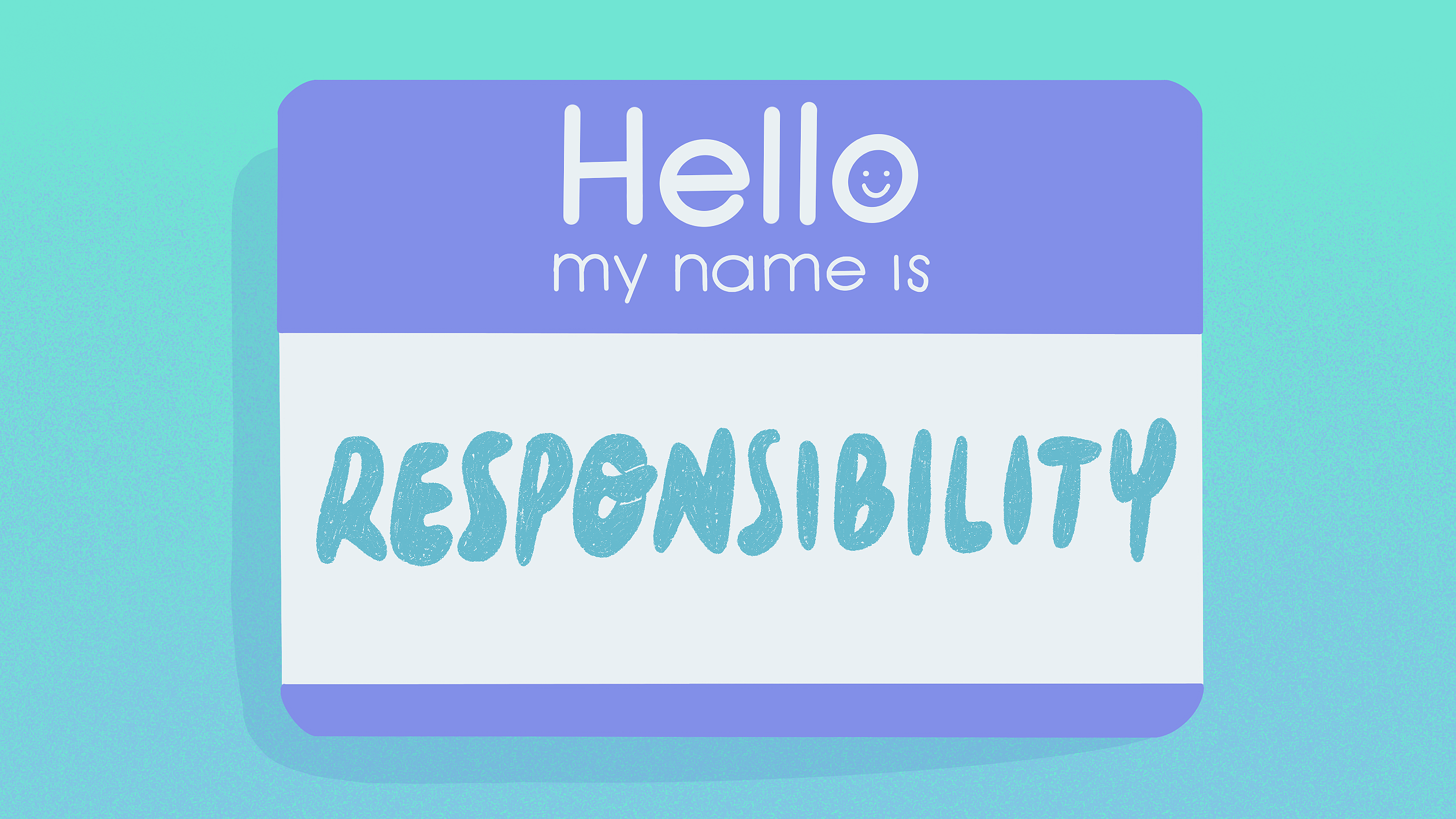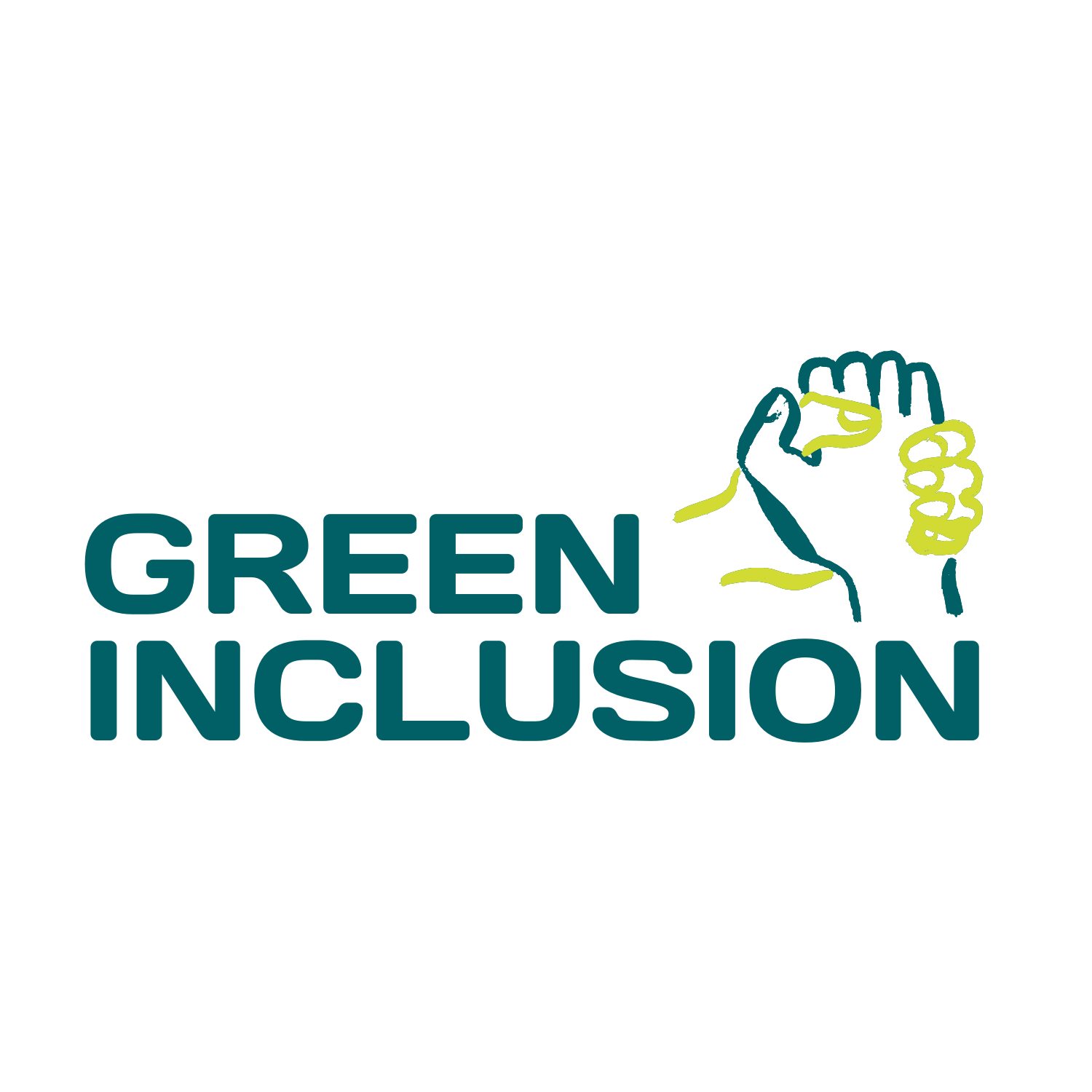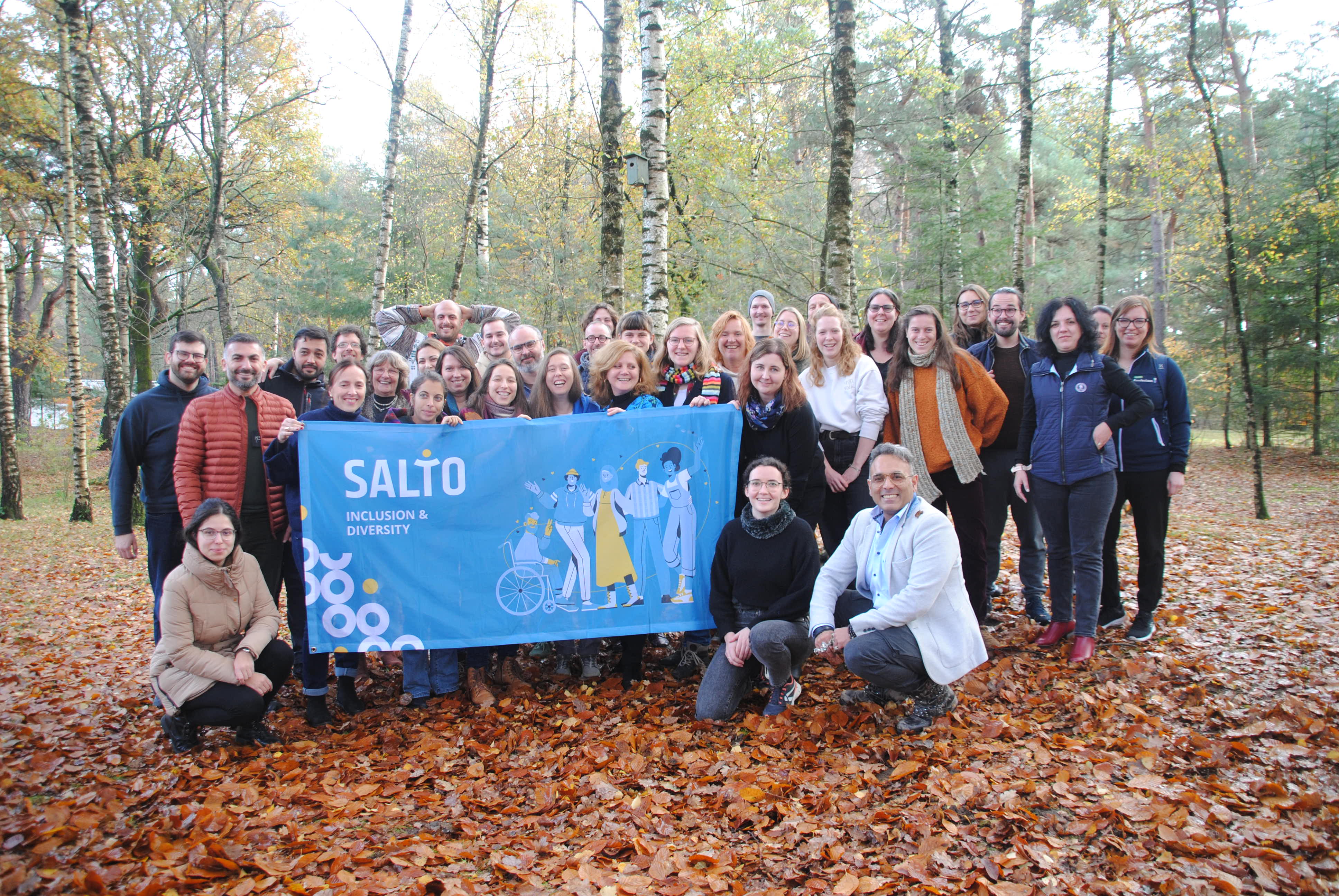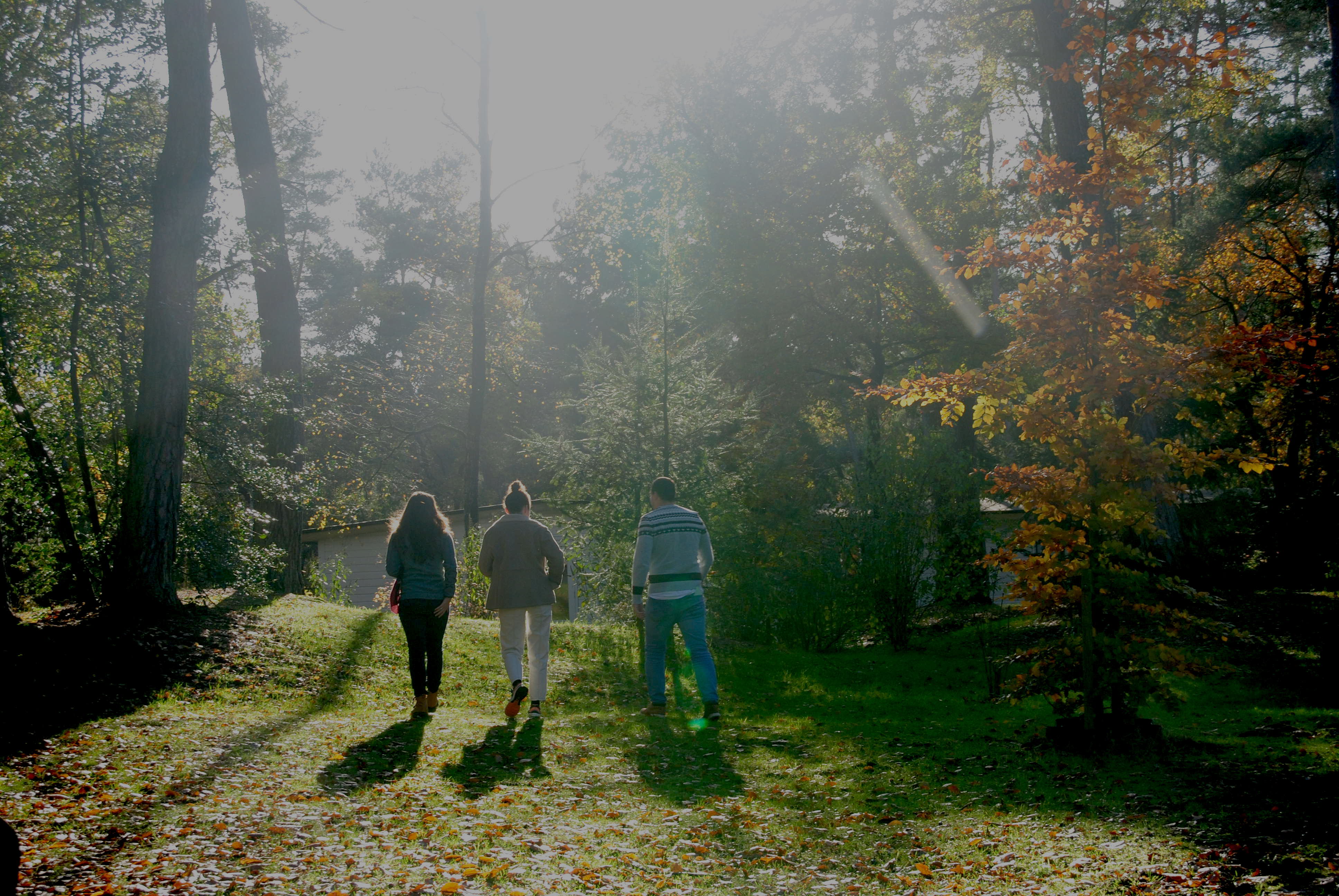
Illustration by Daniela Nunes
Youth work for climate justice
by Pieter-Jan De Graeve, Henrique Gonçalves and Susie Nicodemi on behalf of SALTO Inclusion & Diversity

Two main challenges were tackled: the struggles and barriers for young people with fewer opportunities to participate in environmental projects, and how to bring the environmental emphasis to projects with more vulnerable young people.
With their expertise, experience and relentless enthusiasm, the participants helped to improve understanding of green inclusion, the struggles that organisations are facing when it comes to involving young people with fewer opportunities, addressing climate change topics in a more inclusive way, and also the strengths and needs within the youth sector.
This article presents the most pressing issues and discussions from the seminar, and recommendations and directions for the youth field to move forward in the field of green and inclusion.
But, before we dive into that, let’s go back to July 2021.
 After the sunshine comes the rain
After the sunshine comes the rain
July 2021 – After a dry, hot period, Northern and Central Europe experienced heavy rainfall. The Belgian province of Liège was one of the places hardest hit. In some cities, up to 100 millimetres of rain fell per square metre within 24 hours, a distinct contrast to Belgium’s average yearly precipitation of around 800 millimetres. The consequences were devastating. To this day, remains of houses and houseware can be found on the riverbanks. Pieces of bricks, plaster, roofing, bed sheets, cutlery and electronic equipment serve as reminders of nature’s destructive power.
The most affected people live down the hill, while those living uphill mostly escaped damage. Typically, in this region people living closer to the riverbanks have lower incomes, and the opposite also holds true. Today, people living higher up the hills largely recovered, whereas in the valley some people still await insurance payouts. While the link between extreme rainfall and the climate crisis is assumed, its increasing frequency is certain. And not just in the province of Liège.
 Climate change, consequences and responsibility
Climate change, consequences and responsibility
The floods in Liège are only one of the many stories about the impact of the climate crisis. For us it illustrates the need to connect the fields of green and inclusion and clearly shows how climate change disproportionately impacts the people that have the least responsibility for it. As mentioned before, people living in the most precarious circumstances were hardest hit. At the same time, their climate footprint is lower than those living uphill. On top of that, they have less access to mainstream solutions to fight and adapt to climate change. From food or clothes to buy, to ways to travel, to the possibility of insulating homes or purchasing solar panels. What happened in the province of Liège clearly underscores the urgent need to bridge the gap between environmental and inclusive initiatives.
While the connection between responsibility, consequences, solutions and climate change holds true in Belgium, it is even more evident on a global scale. For many other countries and their populations, climate change has been a lived reality for several years. We know about the extremes of temperature, the fires, and the abnormal timing of seasons. In fact, the UNHCR estimates that hazards resulting from the increasing intensity and frequency of extreme weather events are already causing an average of more than 20 million people to leave their homes and move to other areas within their countries each year.
While we mostly focus here on the interconnection between climate change and income, there are many more to think about: post-colonisation, poverty, gender differences and disabilities should all be addressed. And some voices are already addressing them. Don’t we hear them loud enough, or are they not being listened to?
 Whose voice matters?
Whose voice matters?
Responsibility could be understood as “the state or fact of being accountable or to blame for something” (Oxford Languages). While it’s safe to say that younger generations aren’t responsible for climate change, they will have to deal with the consequences. Young people’s climate movement protesting against the lack of action regarding climate change shows a very different interpretation of responsibility: it is the duty to take control. While youth-led movements like Fridays for Future are crucial and show the power of youth, it always seems to be the same profiles that represent climate activists. Research indicates that school strikers are predominantly from more privileged backgrounds.
On the one hand, the involvement of vulnerable (young) people is limited. But not because of a lack of interest. As one of the seminar speakers put it: “people with low incomes can’t afford to think about the environment”. Other priorities and demands in their life prevent vulnerable young people from participating more long term. On the other hand, climate strike mobilisations are coherent with “environmental classism” (Bell 2020). In this, working-class people and other marginalised groups are alienated by traditional forms of environmentalism despite tending to carry greater environmental burdens for society. The lived realities between people with fewer opportunities and more privileged people are so different that they don’t understand each other well enough to take action together.
This has important implications for how climate policies are designed and implemented. Young people, and those more affected by the climate crisis, need a place at the table. All voices need to be heard. In the words of a participant: “If you don’t have a gender lens, or a systematic approach with several lenses for the problem, then you are leaving people out of the solutions, which leads to more problems.”
 Climate justice
Climate justice
The people who are the first to feel the consequences of climate change are often the last to be heard and carry the least responsibility for it. This is the nexus of Green Inclusion that we defined during the seminar and which clearly connects with climate justice. We must recognise the disproportionate impact of climate change on the most vulnerable people and communities around the world, who are also the least responsible for the problem. Climate justice upholds the position that social, racial and environmental issues are deeply intertwined. It’s not just about being “green”. Achieving climate justice is about recognising the unfairness of the impact of climate change, and about ensuring that historically excluded voices are amplified, and that education, policy and activism are approached with equity, inclusion and restorative justice in mind (Thomas 2022).
Lucía Sánchez, from Youth and Environment Europe and a keynote speaker at the seminar, stated that: “Climate justice ensures that collectively and individually, we have the ability to prepare for, respond to and recover from climate change impacts, and the policies to mitigate and adapt to them.” The seminar made clear that youth work can play a vital role in this: on the collective level and in its interaction at the individual level. But what could be the role of youth work? And what is needed to make full use of it?

 More and better co-operation
More and better co-operation
Climate change is a global issue, yet in the seminar we realised that we are still separating ourselves by borders, nationalities and different ways of thinking. We can’t deal with climate change as an isolated issue – the impact of the climate crisis exacerbates inequalities in society. Solutions must not be one-sided. We must find an integrated approach that deals with these issues as a package. Participants agreed unanimously that supporting each other is vital, including sharing resources and expertise, and allowing collaboration on solutions which are open to all, that address the needs of all, and are co-designed. The co-operation needed for this is at the heart of the youth field. Many of those active in the NGO field understand how to reach out and collaborate with others to augment resources, competence, reach and impact of their work. Youngsters and youth workers also appreciate and respect the solidarity that comes from working as a community strengthened by shared values.
Although co-operation is a strength of the youth field, opportunities aren’t always used. One of the reasons for this is the competition NGOs are facing: having to prove that you are better than others, having to win tenders, or apply for competitive grant funding, explaining why “we” need the money more than others, or why “our” way is better – all this creates a “cycle of elitist movements”. Each one is trying to establish themselves in a limited space, framing themselves in a way that could take the space of others.
Aart Bos, keynote speaker at the seminar, mentioned that the participants of the seminar have the best jobs in the world. “There is an abundance of talents and solutions to build on.” Let’s build connections between the scattered yet passionate people that are currently involved in NGOs (of which there are 20-30 million globally right now). Having this co-operative approach between such a diversity of stakeholders also encourages tolerance and an inclusive approach to different needs. The more that people and organisations are working together, the more need there is for a clear understanding of approach, and tolerance to diversity. Co-operation can be role modelled for young people to help them envision what tolerance and diversity can look like.
 Capacity building
Capacity building
However, co-operation is not enough for climate justice. Another important need identified by the participants at the seminar is the development of competences in NGOs, youth workers, youth, and society at large – knowledge, skills, attitudes and values – to deal with the consequences and challenges of climate change. Youth work is of great value here, because empowering others to build up skills and wider competences is a core element of it. The power of non-formal education, which is an essential part of youth work, has huge potential for change and connection. Education can help people to see themselves in a new way. Experiential learning through creative methods, including nature-based activities, games or storytelling, can be a powerful approach for climate justice education. Often the benefits of these kinds of outdoor learning approaches can be higher for people with fewer opportunities, especially for those that are less in touch with such non-formal education opportunities and therefore have more to gain by participating.
An additional challenge for youth work is to create a framework that articulates these competences in a way that allows them to be understood, applied and passed on further. Tools such as the Youthpass in European youth programmes help with recognition in other ways, but do not (yet) include green inclusion as a topic. There is insecurity about the skill level they have, or the lack of knowledge about topics which can seem wide and complicated. The ability to build skills that allow for empowerment and action against environmentally unfriendly practices, or how to implement visions on climate justice, are not (yet) supported by enough sharing of practice or training development.
 Participative decision making
Participative decision making
Ensuring equitable access to the decision-making spaces is crucial. As a participant of the seminar emphasised: “We are here. We want to be listened to. It’s not that we are young so we have less expertise. We know our own needs.”
Only if policy makers know what is wanted can they can truly address problems. That’s why policy discussions need to open up more spaces to citizens and in particular to people with fewer opportunities. As mentioned before, they are hit hardest by the climate crisis. Some of the most affected by the climate crisis in their daily lives have been forced to search for solutions to adapt to the new realities. They should be able to express their problems and needs, and be at the core of the solutions. They must be recognised as a role model for sustainability and be brought to the discussion. Important here is to get away from tokenism where people are solely invited to tick a box, but not to have a real impact. Policies need to change.
One of the main conclusions at the seminar is that youth work can be the driving force behind this change. It empowers young people to use their own voice, to express their needs and ideas, and ensure their involvement in governance systems, so that their decisions are reflected in action. Initiatives to bring young people into the governance of an association can show the power and responsibility they have to make change.
 Pathways for youth work
Pathways for youth work
Youth work is a key actor to foster co-operation, build capacities and strengthen participative decision making. Youth work is an actor of change, but is also needs to change itself to include young people with fewer opportunities in the green transition and the fight against climate change. Based on inputs from participants of the seminar, we propose pathways for trainers, youth workers and organisations on how this can be done.
Outreach for more inclusion
If we are trying to reach and involve vulnerable young people, we cannot use the same tools used to reach out to more well-off young people. It’s necessary to build relationships and trust with young people and other stakeholders in their communities, including their families and younger children.
Start by researching the groups you are not yet reaching: who are they, what do they like, and where can they be found. Consider diversifying your communication methods to reach more and different people. Use phone call and in-presence meetings and go to places where young people are.
The inclusion angle
The same goes for the pedagogical approach. Use peer-to-peer learning, with characters and personalities that other vulnerable groups can relate to. Encourage knowledge exchange between those that have experience and those that don’t.
Arrange the meetings in safe spaces that the young people relate to, and get support from teachers, trainers and other role models that young people know. Also, be aware of the terminology and jargon used. Most likely, you will need to adapt the language to the type of group.
Storytelling can be a powerful method. Provide opportunities for young people to tell their story. Work out their needs for support, so they have the platform to have their voice heard.
The green angle
Adjust your approach to the local area and territory. Education and learning activities don’t always have to take place in forests. If you live in an urban area, encourage people to connect with the greenery and nature in the city. Run your activities outside. Have practical interactive learning by doing exercises. Don’t always have people sitting around tables in workshops.
Have awareness raising as an objective, step-by-step approach. Participants don’t have to become eco-warriors in a week. Give participants opportunities to change their habits. Allow them to work out their own priorities. Encourage concrete activities, even if they are small, where they can see and own the change they are making.
Youth work approach
Give young people time and space to talk. Listen to their words as well as the needs and feelings behind them. Work on giving young people the support needed to own the space themselves. Empower them to have more confidence and energy to use their voice.
Always consult the young people that benefit from your actions. Have an evaluation approach to check that your project or activity is working before, during and after.
Use a project management approach to consider the long-term objectives, the funding to deliver them, and what the impact and follow-up will be.
Use grant funding to make your projects go further. Get experience in Erasmus+ and European Solidarity Corps projects and link to other partner organisations to deliver projects together. Learn and share with others, to appreciate differences and to benefit from the common ground.
Co-operation
Build alliances with others, increase your network, learn from others and collaborate. Hold round-tables of discussion and connection, including young people and volunteers. Invite different local stakeholders and experts in the topic. Think cross-sectorally. Connect networks of volunteers together.
On the international level, there are many opportunities where you can hear and compare others’ practices. Connect to bigger NGOs and use their social media reach to enlarge the participants in your projects. Likewise, it’s important to strengthen the connections in your local community. Bring in the local perspective on what you are doing, connect to other stakeholders, and encourage input and conversations with them.
If your primary focus is green topics, connect to organisations that do inclusion well. If you work on inclusion, connect to a green organisation.
Keeping volunteers on board
It’s important that your volunteers feel supported. It should be clear that someone always has their back, that they have the freedom to be themselves. They should have a sense of belonging to the project or the organisation. Get to know them outside of their volunteer role and listen to their (other) needs and interests.
Increase their participation, give them space in the governance of the organisation, make sure there is time and place for their voices in decision-making processes, encourage them to contribute to the vision and next steps.
Provide the volunteers with other opportunities outside of volunteering: internships / job shadowing / further education / training / skill development.

 So, what does it all mean?
So, what does it all mean?
As a human race, we often feel more superior than other parts of nature. We often prioritise ourselves over all other natural things, and exploit nature for our own good. A sense of entitlement can be seen when human choices are made to the detriment of animals, plants, the environment, etc. Superiority can also be seen in the powerful elite who make decisions for the rest, without including or listening to the needs of different people. People in power such as multinationals, governments or the very rich don’t always show that they see the urgency of the climate crisis, or how the more vulnerable are being more affected. It’s not a positive thing to emulate, nor are they the right role models for the young people of today. How can we make sure that when we come to the table, we don’t become like them? How can there be more climate justice? How can voices be heard, responsibility more equally shared, and climate justice attained?
For all these questions we should listen to the advice of one of the seminar participants: “Ask kids and work with them – they are the most creative and unbiased people in the world.” Kids, youngsters, youth work and educational systems. They will have a crucial role to play in order to adapt and deal with climate change. How we educate the youth of today is how they themselves are going to engage with the next generation.
Youth work is a key actor to build capacities and competences needed, and to strengthen participative decision making. While youth projects and activities that are already being carried out are important and have impact, they are mostly accessible and representative for well-off youth. Climate justice can only be achieved if young people with fewer opportunities also own space in the system, with their voices heard, and solutions made around their needs too. Youth work has a responsibility to better include young people with fewer opportunities. The only way to realise this is by putting into practice even more and in a better way that other side of responsibility: the duty to take control.
 More information
More information
SALTO Inclusion & Diversity Resource Centre strives to give young people with fewer opportunities better chances in life and create a more inclusive society that embraces diversity of all kinds. To do so, it contributes and supports the field of youth and youth work, in working with young people with fewer opportunities and embracing diversity, within the frame of the EU youth programmes.
The seminar Green Inclusion was hosted in Amersfoort, the Netherlands by the Dutch National Agency of Erasmus+ (Netherlands Youth Institute) with the support of SALTO Inclusion & Diversity, and the German and Belgian French-speaking national agencies.
 References
References
Bell K. (2020), “Introduction: environmental classism”, in Working-class environmentalism: an agenda for a just and fair transition to sustainability, Palgrave Macmillan, pp.1-26.
Thomas L. (2022), The intersectional environmentalist: how to dismantle systems of oppression to protect people & planet, Souvenir Press, London.

Pieter-Jan is programme officer at SALTO Inclusion & Diversity.
Henrique is a project officer at SALTO Inclusion & Diversity.
Susie is a youth sector writer.


